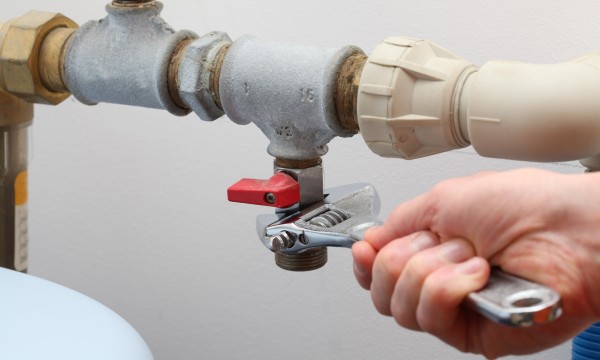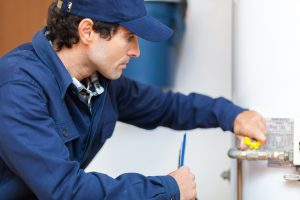Responding to the Everyday Heater Urgent Problems
Responding to the Everyday Heater Urgent Problems
Blog Article
We've discovered this post involving The Importance of Water Heater Maintenance below on the web and reckoned it made sense to relate it with you on this page.

A water heater is just one of the most essential fundamental devices that can be found in a residence. With hot water heater, you don't need to undergo the tension of home heating water by hand every time there is a demand to wash, do the laundry, or the meals. There is always a possibility that your water heating system would certainly act up as with a lot of mechanical devices.
It is important to note any kind of little breakdown as well as tackle it quickly prior to things get out of hand. The majority of times, your hot water heater starts to malfunction when there is an accumulation of sediments as a result of constant use. As a preventative measure, routine flushing of your water heater is recommended to stop sediment build-up and also avoid useful failure.
Common water heater emergencies and also how to deal with them
Leaky hot water heater storage tank.
In this circumstance, you must transform off your water heater, permit it to cool down, as well as meticulously look for the resource of the trouble. At times, all you require to do is to tighten up a few screws or pipeline connections in instances of minor leaks. If this does not function and the leak lingers, you may require to utilize the services of a professional for a suitable substitute.
Changing water temperature.
Your water heater can start producing water of different temperatures generally ice hot or chilly warm. In this situation, the first thing you do is to make certain that the temperature is readied to the wanted degree. If after doing this, the water temperature level maintains changing during showers or other activities, you may have a faulty thermostat. There could be a need to replace either the thermostat or the heating unit of your water heater.
Too little hot water
It might be that the water heating system can't sustain the hot water need for your home. You might upgrade your water heating system to one with a bigger capacity.
Tarnished or odiferous water
When this happens, you need to recognize if the issue is from the container or the water source. You are particular that it is your water heating system that is damaged if there is no funny odor when you run chilly water. The stinky water can be brought on by corrosion or the buildup of germs or sediments in the hot water heater storage tank. As soon as you notice this, you can try flushing out your storage tank or replacing the anode if the problem continues. The feature of the anode is to clean germs from your tank. Given that the anode pole replacement requires a detailed expertise of your water heating system, you will need the aid of a professional.
Conclusion
Some house owners overlook little caution and minor faults in their water heater unit. This only results in further damages as well as a feasible total malfunction of your home appliance. You should handle your water heater faults as quickly as they come up to stay clear of more costs and unnecessary emergency troubles.
With water heating units, you don't need to go through the tension of heating water manually every time there is a requirement to take a bath, do the washing, or the recipes. Your water heating system might begin producing water of various temperature levels normally ice hot or cool hot. It might be that the water heater can not support the hot water demand for your home. If there is no funny odor when you run chilly water, then you are particular that it is your water heating unit that is defective. The odiferous water can be triggered by corrosion or the build-up of germs or debris in the water heater tank.
Common Water Heater Issues and What You Should Do
What Type of Water Heater Do You Have?
Before we begin it’s first important that you identify the type of water heater you have on your property. There are two main types of water heaters out there: conventional and high efficiency.
Both of these types of products typically use either gas or electricity to heat power. There are also solar water heaters that use a thermal collector on the roof or yard to heat the water.
While these models are not as common, they can cut heating costs in half. In this article, we will focus on conventional and high efficiency.
How Do My Electric and Gas Water Heater Work?
Though they look similar, electric and gas water heaters work very differently. It’s important to know their basic function because often problems can be specific to the heating source.
In the electric model, a thermostat on the side of the machine detects the temperature of the water in the tank. When the temperature needs to rise electricity flows to a heating element suspended in the water.
Gas models also use a thermostat device — typically with a mercury sensor at the tip and an additional sensor called a thermocouple. The thermocouple detects whether the pilot light is on and controls the flow of gas.
When the thermostat drops below the appropriate level gas is released which becomes ignited by the pilot light. The flame heats the bottom of the water tank which causes hot water to rise and cold water to drop.
This natural circulation continues until the water reaches the desired temperature. Then, the thermostat triggers the gas control valve to shut off the flow of gas.
What Are the Most Common Issues and How Do You Fix Them?
https://happyhiller.com/blog/common-water-heater-issues-and-what-you-should-do/

I'm just very excited about Warning Signs You Need Water Heater Repairs and I'm hoping you liked my entry. Sharing is caring. Helping people is fun. We appreciate reading our article about Is Your Water Heater Leaking?.
Efficient help? Call! Report this page